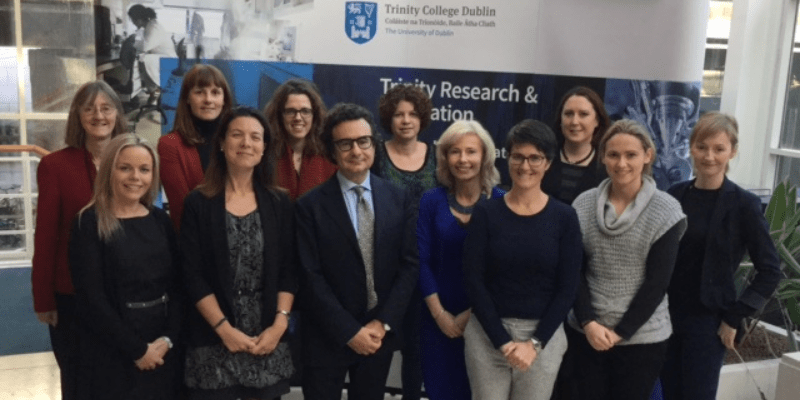META’s Vice-President & COO ran a day-long “Impact within an H2020 proposal” training session for research project officers at Trinity College (Dublin) last month.
“Entire generations of European scientists ‘grew up’ with the EC’s Framework Programmes, but Horizon 2020’s emphasis on impact has left many unsure of how to proceed,” observes Doris Alexander, Research Development Manager at Trinity College, Dublin. “We’re one of the most successful Universities at winning project funding from Framework, but it’s becoming more and more competitive with every Call, so we have to constantly up our game.”
An exploitation plan is a process, to be followed throughout the projec
This is something that Alessia Melasecche Germini, META’s COO., has seen many times since the launch of Horizon 2020. “While many are quite able to score highly on the “Excellence” part of their proposal, they won’t get funding without a convincing Impact statement and a comprehensive Implementation plan,” she explains. “Too many still think their project’s exploitation plan is just another deliverable. It’s not – it’s a process, and it must be followed throughout the project”.
Another critical mistake, according to META Vice President Andrea Di Anselmo, is to think that “an amazing project result will automatically lead to an amazing impact. It’s just not that simple. You need to consider the customers, markets, relevant frameworks created by regulators and standards, as well as the role of the different actors and how they all operate together. What impact will the project have on all of this? Or will the project results simply sit on some lab shelf until they become obsolete?”
Moving upstream
In the past, such issues were often left to the second half of project implementation. Today, failing to address them in the proposal phase will probably ensure that there will not be any project implementation.
Hence Alexander decided to improve the quality of Trinity’s proposals by ‘moving upstream’ – putting greater emphasis on the exploitation phase within the initial proposal. “It’s still research, and so is inherently risky, but you do need to show the evaluators that you’re already thinking about this from the very outset”.
Moving upstream, however, means bringing new skills and perspectives into the research proposal phase. “Traditionally, my team at Trinity College focused on the proposal phase, while another team would look at exploitation only once a project was funded and underway,” she explains. “These are two different worlds – the exploitation team didn’t know much about proposal preparation, while we didn’t know as much as we needed about exploitation. And everyone’s working full stretch. META’s workshop helped us square the circle.”
The training session
After a quick introduction to the basic concepts, the morning session introduced the H2020 Impact section before examining the most crucial issues in greater depth, including:
- Understanding the evaluation process
- Using logical frameworks to prepare project proposals, and the Lean Canvas to prepare exploitation plans
- Drafting a business plan
- Open Research Data and Data Management Plans
- Distinguishing exploitation, results dissemination and communication plans while ensuring coherence between them
The participants split into groups for the afternoon to analyse two actual project proposals using these new tools and perspectives, before finishing the day with an open discussion.
According to Trinity College’s Alexander, “it was a very worthwhile workshop, and we’ll definitely be using techniques like the logical framework and some of the ideas concerning getting industry involvement. I recommend it.”
A selection of Alessia’s and Andrea’s slides follow. If you need help crafting a better exploitation strategy, check out Training and Coaching programmes, or just get in touch.

